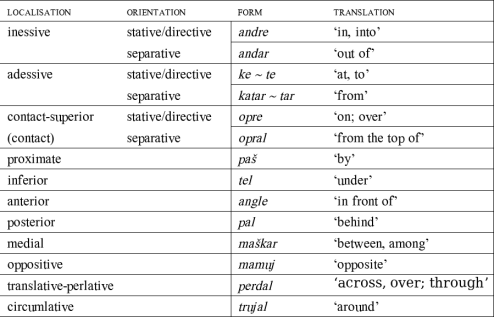The structure of Romani
Other Categories
Local adverbs
ER local adverbs encoded two orientation values: the stative-directive and the separative-perlative. Separative-perlative adverbs were derived from stative-directive adverbs by the old ablative suffix -al (e.g. andr-al ‘from inside, through inside’ < andr-e ‘inside, inward’, dur-al ‘from far’ < dur ‘far’, kher-al ‘from home’ < kher-e ‘at home, home’).
Prepositions
ER local prepositions are reconstructed in Figure 12. There were no distinct temporal prepositions. Non-local prepositions are: the privative bi ‘without’, the benefactive vaš ‘for’, and the causal astjal ‘for’. The expressions dži ‘up to, until’ and sar ‘as, than’ (< ‘how’) were particles rather than prepositions in ER.
Figure 12: Early Romani local adpositions


